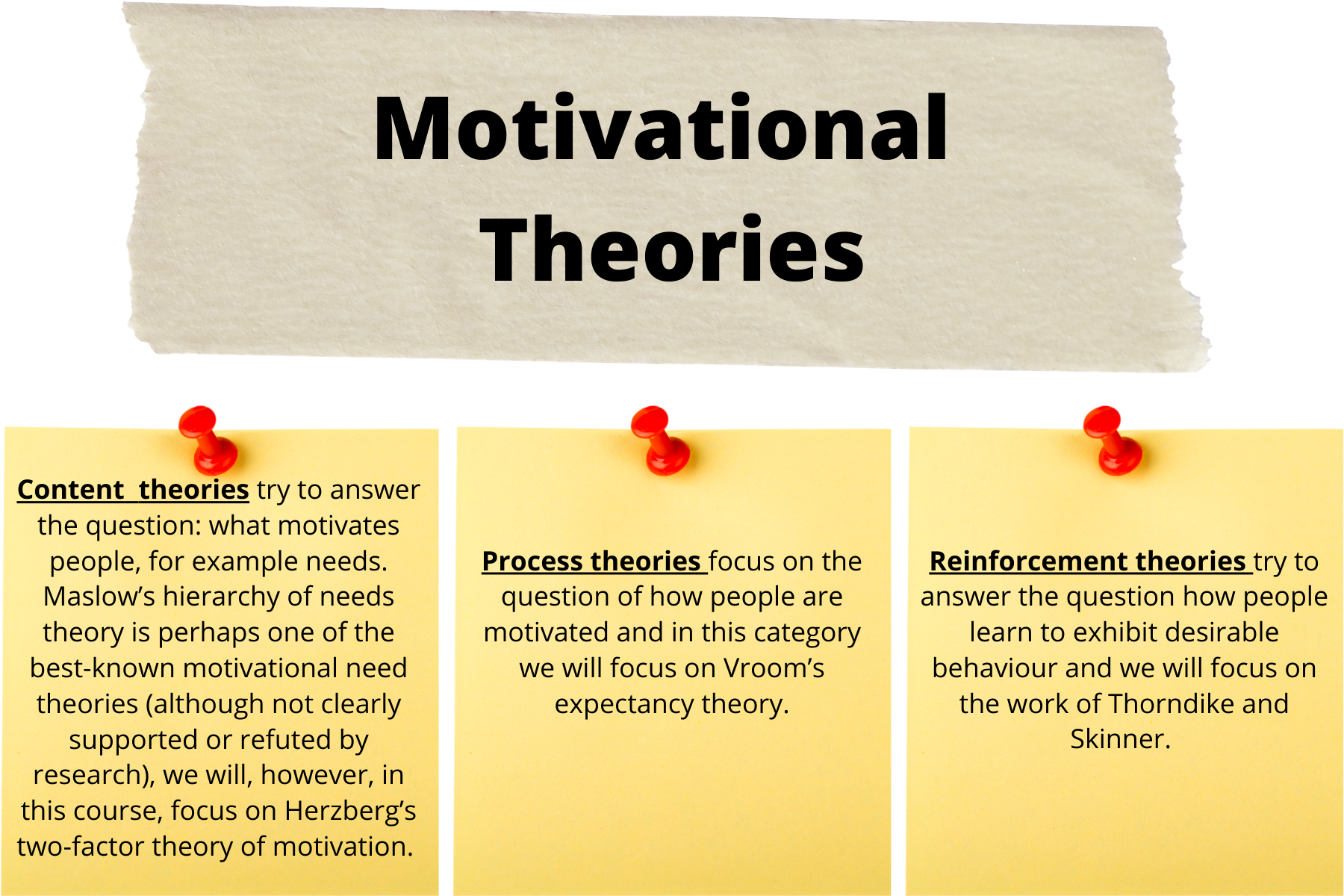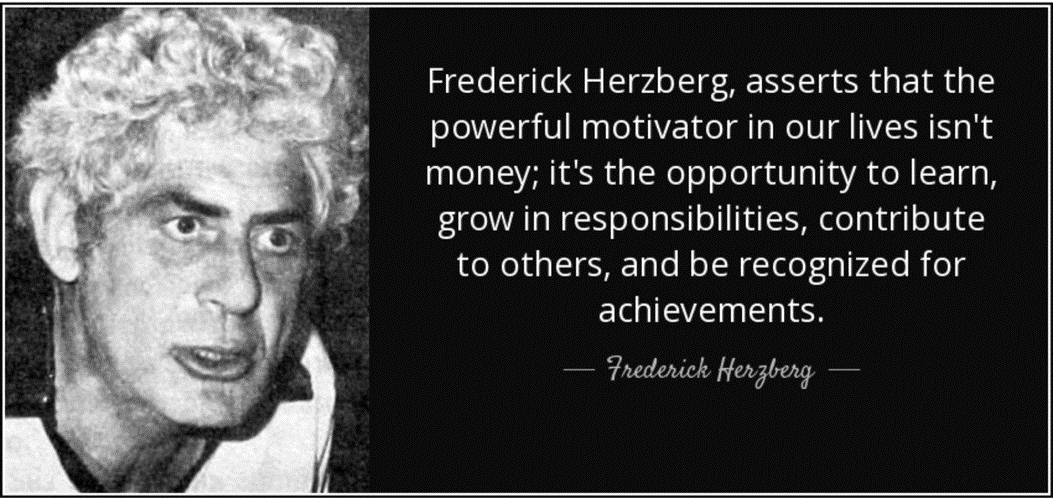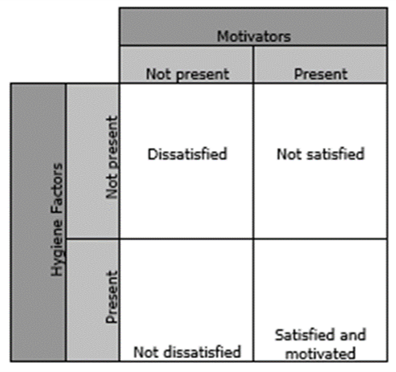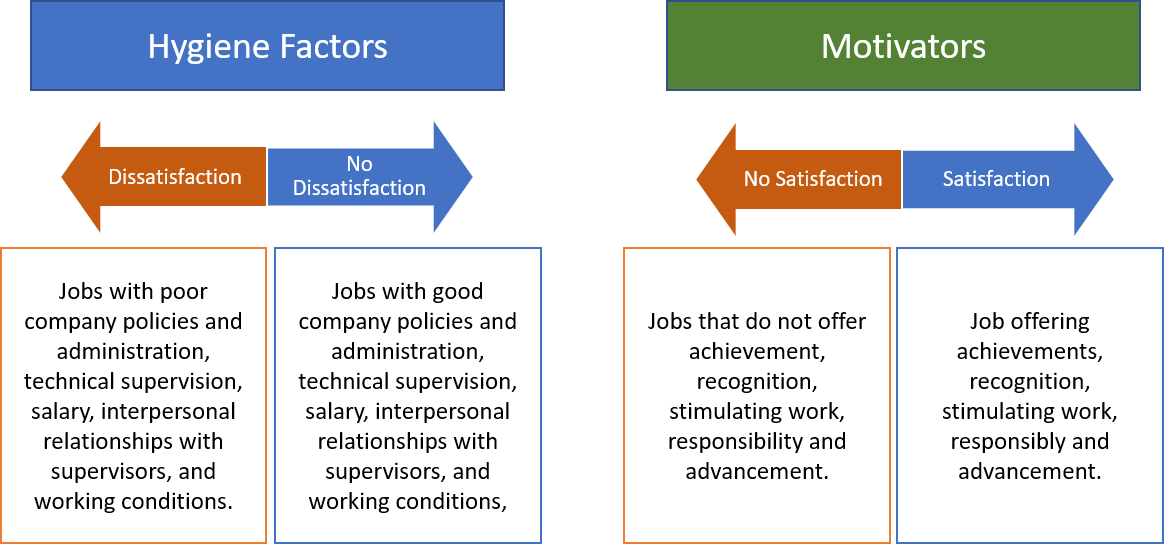Swanepoel et al. (2000:354) use a popular taxonomy of motivational theories where theories are divided into content, process and reinforcement theories.

Motivation-Hygiene Theory
Herzberg's theory is based on a landmark study in which he interviewed 203 accountants and engineers (Kreitner et al. 1999:191).
The question, "What do people want from their jobs?" was investigated by Frederick Herzberg and he concluded that all variables that make people feel either good or bad about their jobs can be grouped into one of two categories. The more intrinsic factors, such as achievement, recognition, the work itself, responsibility, growth and advancement, seem to be related to job satisfaction. Extrinsic factors, such as security, status, remuneration, company policy, administration, supervision, interpersonal relations with subordinates, peers and supervisors and working conditions, on the other hand, tend to be associated with dissatisfaction.

According to Herzberg the opposite of satisfaction is not dissatisfaction. The removal of dissatisfying aspects (the hygiene factors) from a job does not make the job more satisfying (Swanepoel et al. 2000). Job satisfaction is a function of challenging, stimulating activities or work content ("motivators"), whereas dissatisfaction is a function of the environment, supervision, co-workers and general job context ("hygiene factors"). Job satisfaction will not be attained by the mere presence of hygiene factors, it will only lead to a state of "no dissatisfaction". In order to motivate employees, however, the motivators must also be present (see Tables 3.1 and 3.2). Conversely, for motivators to operate as motivators, the hygiene factors must be present (Swanepoel et al. 2000). Therefore, Herzberg's satisfaction, theory predicts managers can motivate individuals by incorporating "motivators" into an individual's job (Kreitner et al. 1999).

Herzberg's two-factor theory of motivation
Source: Herzberg, Frederick. 1968. One more time: How do you motivate employees? Harvard Business Review, Jan-Feb 1968, p.57.
Herzberg’s Motivator – Hygiene Model

Source: Kreitner, Kinicki and Buelens. 1999. Organisational Behaviour. McGraw-Hill. London.